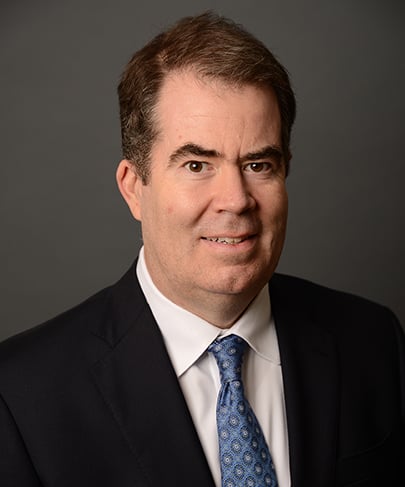Department of Labor announces the final overtime rule. Is your business ready?
- Beemer, Jeffrey M. Estes, Jr., M. Reid Deromedi, David R.
- Industry Alerts
Click “Subscribe Now” to get attorney insights on the latest developments in a range of services and industries.
On May 17, 2016, the U.S. Department of Labor (“DOL”) announced the final rule updating the requirements for employees to qualify for exemptions from the overtime requirements under the Fair Labor Standards Act (“FLSA”). The final rule, which takes effect on December 1, 2016, represents a dramatic change from the existing rule.
Under the existing rule, which has been in effect since 2004, employees must be paid a minimum salary of $455 per week ($23,600 annually) to qualify for the “EAP” – executive, administrative, professional – exemptions from the FLSA’s overtime requirements. Under the new final rule, the salary level will increase to $913 per week ($47,476 annually). Beginning January 1, 2020, the salary level will update automatically every three years to the 40th percentile of full-time salaried workers in the lowest-wage U.S. Census region. The DOL estimates that this figure will be $51,168 in 2020. However, the final rule will allow up to 10 percent of the salary level threshold to be met through the payment of non-discretionary bonuses, incentive pay, or commissions. In order for these payments to count towards the salary level, they must be made on at least a quarterly basis.
The final rule also updates the total annual compensation level above which Highly Compensated Employees (HCE) are ineligible for overtime. The new level is $134,004 per year, which is up from the current $100,000 per year. The HCE threshold will automatically increase every three years to the 90th percentile of full-time salaried workers nationally, which the DOL estimates will be $147,524 in 2020.
The final rule made no changes to the “duties” test for employees to qualify for the EAP exemptions. Some believed that the DOL would include in the final rule the quantitative test from the California Labor Code that an employee must spend more than one-half of his or her time performing exempt duties in order to qualify for the EAP exemptions, but the DOL did not incorporate this test into the final rule. The DOL stated that the updated salary level, coupled with the automatic updates to the new salary level, will serve as the most effective way of determining which employees should be considered exempt.
The final rule reflects that the DOL took into consideration concerns from the business community raised in response to the proposed rule issued in June 2015. The final rule reduced the proposed salary level from $50,440 to $47,476, lengthened the implementation period from 60 days to six months, and left the duties test unchanged. However, there is no sugar coating the fact that six months from now, employees must be paid a salary of more than double the current salary level test in order to qualify for the EAP exemptions. Employers will have to raise the salaries of exempt employees to meet the new salary level, or re-classify exempt salaried employees to nonexempt hourly and manage the overtime they work.
Please contact the authors of this client alert or any members of Dickinson Wright’s Labor and Employment practice group for more information about how your business should implement the DOL’s final overtime rule.
This client alert is published by Dickinson Wright PLLC to inform our clients and friends of important developments in the field of labor and employment law. The content is informational only and does not constitute legal or professional advice. We encourage you to consult a Dickinson Wright attorney if you have specific questions or concerns relating to any of the topics covered in here.
FOR MORE INFORMATION CONTACT:
Jeffrey M. Beemer is a Member in Dickinson Wright’s Nashville office. He can be reached at 615.620.1719 or jbeemer@dickinsonwright.com.
M. Reid Estes, Jr. is a Member and Practice Department Manager in Dickinson Wright’s Nashville office. He can be reached at 615.620.1737 or restes@dickinsonwright.com.
David R. Deromedi is a Member in Dickinson Wright’s Detroit office. He can be reached at 313.223.3048 or dderomedi@dickinsonwright.com.
For a printable version of this labor and employment client alert, click here.
Related Practices
Contacts
Recent Insights
- Industry Alerts Employers’ Top Burning Questions About The DOL’s Guidance On The Families First Coronavirus Response Act Answered
- Industry Alerts Keep Rollin’ Rollin’ Rollin’: DOL Reissues 17 Opinion Letters That Had Been Withdrawn Under the Obama Administration
- Industry Alerts DOL Issues Final Overtime Rule Increasing the White-Collar Employee Salary Threshold. Employers Have Until January 1, 2020 to Change Payroll Practices
- March 14, 2025 Media Mentions Sara Jodka was recently quoted in the SHRM article, “Make Inclusion an Operational Strategy, Not a Standalone Program.”
- February 21, 2025 Industry Alerts Last-Minute Changes to Michigan Earned Sick Time and Wage Laws: Effective February 21, 2025
- November 21, 2024 In the News Five Dickinson Wright Attorneys Recognized in 2024 Mid-South Super Lawyers
- November 19, 2024 Industry Alerts Hold Up, Wait a Minute: Judge Blocks Salary Threshold Increase and Rolls It Back to Pre-July 2024
- August 22, 2024 Industry Alerts Federal Judge Sets Aside the FTC’s Noncompete Ban
- August 05, 2024 Industry Alerts Michigan Employers Must Increase Sick Time and Minimum Wage by February 21, 2025



